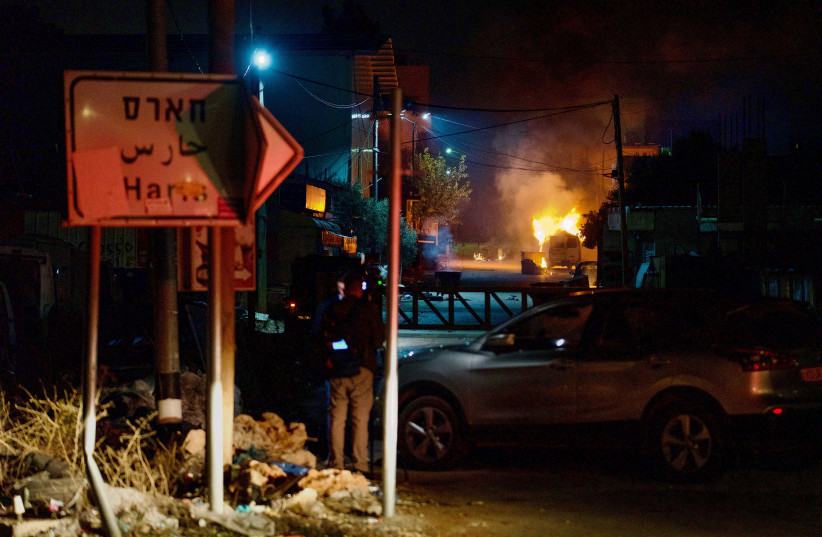It’s been years now that Israel has been seeing terror attacks that are not purposely perpetrated as part of an operation led by one specific terror organization, but rather by single people taking upon themselves to murder innocent civilians.
In recent weeks, these attacks have come again – randomly and lethally. These are now well-known as “lone wolf” attacks.
In 2019, The Washington Post looked at attacks carried out by Palestinians and found that most of them seem to be random and based on opportunity rather than careful planning. A majority of the terrorists are young, unmarried men using a kitchen knife. This later became the working definition for lone-wolf terror attacks.
That definition, for the most part, applies to the attacks seen recently.
Three Israelis were brutally murdered and another three injured this past Tuesday, for example. The terrorist, Muhammad Murad Sami Souf, was 18 years old and used a knife and car to kill the victims. It is believed that he was working alone.

Just two weeks prior in October, Hebron resident Muhammed Kamel al-Jaabari used an M-16 rifle – the kind most IDF combat soldiers carry home with them – to murder 50-year-old Ronen Hanania. Again, we see a young attacker working alone.
In August, Amir Sidawi wounded at least eight people – including a pregnant woman, who had to have an emergency C-section – when he opened fire at a bus.
Focusing on the most recent attack in Ariel, we can see a young Palestinian man with a permit to work in the city and who had a job at a cleaning company in the industrial zone. There are thousands of Palestinians with permits like him – and most of them do not plan on carrying out terror attacks on innocent civilians.
It is crucial to see that lone wolf attacks are just that: extremist actors taking matters into their own hands, completely alone. This should not and must not affect the good standing relationship between Israelis and Palestinians in the Ariel industrial zone as it operates today.
The coexistence, and in Ariel of all places, represents so much more than what one extremist does. If this lone wolf attacker is given the power to destroy that, it significantly harms the fragile coexistence that exists in Judea and Samaria – which is exactly what these terrorists want.
Nevertheless, Israel must adopt a clear strategy to counter the things that happened in that awful attack.
Lone wolf attacks are difficult to track and predict due to the very nature of the attacker, who operates alone. That means that, in essence, one of the major databases wherein the planning for the attack happens is not in a war room or on a map, but in the mind of the attacker. So how can this be predicted and stopped?
Lone wolves do not belong to Hamas, Palestinian Islamic Jihad, Lions’ Den or any other terrorist group that raises its ugly head against Israelis.
These are individuals whose ages vary, inspired by vicious incitement from social-media networks and traditional media on television screens and radios. They feel as though they have nothing to lose – or know that they might very well lose their lives for it – and can randomly choose, at any given moment in the day, to use whatever weapon is closest to them to brutally murder victims chosen at random.
In Souf’s case, he came armed with a knife and killed two civilians before he chose another weapon – a stolen car – to kill another one.
Attacks by lone wolves, the IDF has admitted, are much more challenging to thwart than those planned by groups. If you don’t have an organization, you don’t have the signature of the preparedness of the specific attack.
It’s important to note that the IDF and Israel’s other security forces thwart terror attacks – even lone-wolf attacks – every single day. It is these more shifty ones that fly under the radar that nevertheless get perpetrated.
Since lone wolf attacks are carried out by those who feel that they have nothing to lose, this could provide yet another way to narrow the search down.
Once Israel manages to perfect its behavioral analysis and track down the signs – mostly online – then perhaps the next stabber or shooter who would have previously flown below the radar will now be caught before another family has to bury a loved one.
This is a huge challenge that the new government will need to confront; a new strategy is needed.
